Prince Philip’s funeral to test Harry and William’s royal rift
As Prince Harry prepares to walk with – but not next to – his brother William at his grandfather Prince Philip’s funeral, a longer road lies ahead if they are ever to reconcile.

NSW
Don't miss out on the headlines from NSW. Followed categories will be added to My News.
No family rift – even one as deep or as public as that between Prince Harry and his royal family – is irreparable.
But as Harry prepares to walk with – but not next to – his brother William at his grandfather Prince Philip’s funeral in Windsor Castle tonight Australian time, there is a long road ahead if they are ever to reach reconciliation.
Australian experts say grief can be the ultimate leveller of family crisis, giving hope that the once private affairs of the royals can be mended, despite the fallout from Harry and Meghan Markle’s explosive tell-all with Oprah last month.
“It is the case that conflict can continue for as long as everyone is alive and well – as people age, or people reach end of life, there can be a sense of ‘last chances’ that can bring people together,” Relationships Australia CEO Elisabeth Shaw said.
“Family events such as marriages or births can do the same.
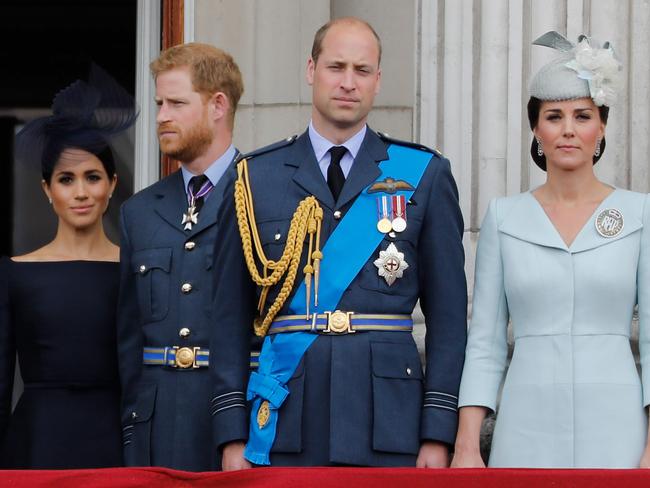
“The difficulty is that if conflict is not managed, or some repair hasn’t happened before the events occur, there is some vulnerability for fights to break out at the bedside or at the ceremony, and then the pain can be greater as the fight is inextricably linked to the significance of that event.”
In a blatant case of in-family finger pointing, blame for petty disagreements with sister-in-law Catherine, the Duchess of Cambridge, and serious accusations of racism within the Establishment, there’s no doubt that Meghan and Harry’s claims widened distances between Harry and his family during the interview.
And while friction between siblings and in-laws may feel at an highest, experts say nothing is unforgivable. The opportunity for Harry to go home to the UK and have time alone with his family while grieving the 99-year-old Duke of Edinburgh could be the reset they need to heal past wrongs.
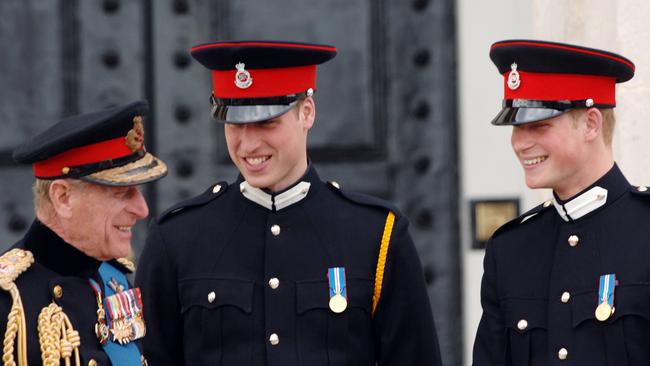
Shaw said that public or not, often family rifts could seem unrecoverable. However, unless there has been violence or abuse, feuds can be repaired at any point – as long as there is bravery and goodwill from both sides.
“It only takes one person to start the ball rolling,” she told Saturday Extra.
“You risk rejection, but if you want repair it is worth a try if it really matters to you. It is best to think of a neutral opening statement, and one involving positive intent. You don’t have to take all the responsibility, just be the ambassador for change.”
Shaw suggested an opener of ‘I am sorry that we haven’t spoken for so long. I’d like things to be different. Could we get together to talk about it?’ or ‘I miss us being in touch and would like it to be easier between us’ was a good place to start.
“If there have been repetitive fights that you know you have participated in, then say ‘I am sorry for my part in how we got here’,” she said.


“All of these statements set a calm tone, show leadership, are non-blaming, offer maximum room for the other parties to participate.
“If you know that conflict can flare up easily and have little confidence you can single-handedly make it different, then say ‘this means a lot to me, and I want us to do no more harm and have a chance of getting this right. Would you see a counsellor or mediator with me so we can be safe and talk about how we can make things different between
us?’ ”
Senior clinical psychologist and family therapist Glenn Larner said family conflict could occur due to the need of one family member to establish their own identity or space, as could have been the case for Prince Harry.
“They may see emotional cut-off from their family as the only way to preserve their sense of self and identity,” he said. “In this scenario it can be a waiting game where the wounded party needs to give it time and not feel rejected, hurt or angry.
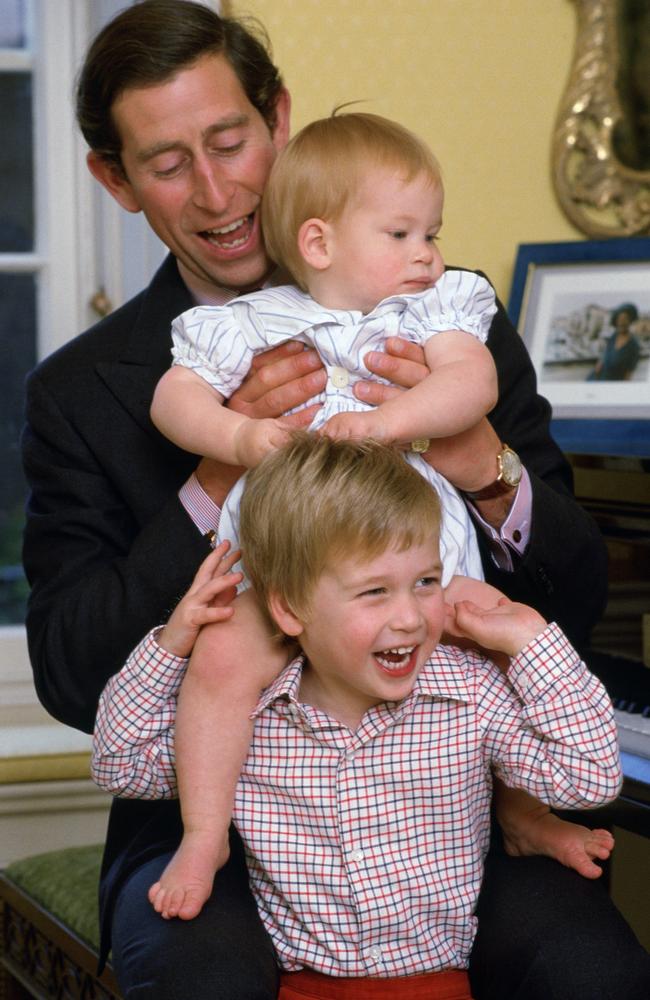
“They need to not let a breakdown in relationship trigger a sequence of events that may make reconciliation in the future impossible and I think we have seen Queen Elizabeth adopt this strategy.
“Her understanding, acceptance and opening up the possibility for dialogue in the future is the way to go.”
Larner said where there had been a breakdown of relationship between a parent and a child, sometimes the parent needed to step back and acknowledge their contribution and see the issue in perspective.
“Namely that family and preserving a relationship is more important than anything else, that wounded pride can heal but the irretrievable breakdown of a relationship is completely damaging to all parties,” he said.
“Here a best practice response to family conflict is to step back and take a look at oneself and be mindful acknowledging how one has contributed to a situation.
“The key ingredient here is a willingness to hear out the others hurt and not try to defend one’s own position.
“It is true that a major family event like the death of a family member can put things in perspective and help families to see what is important, and grief may help persons to step towards each other and initiate healing conversations.”
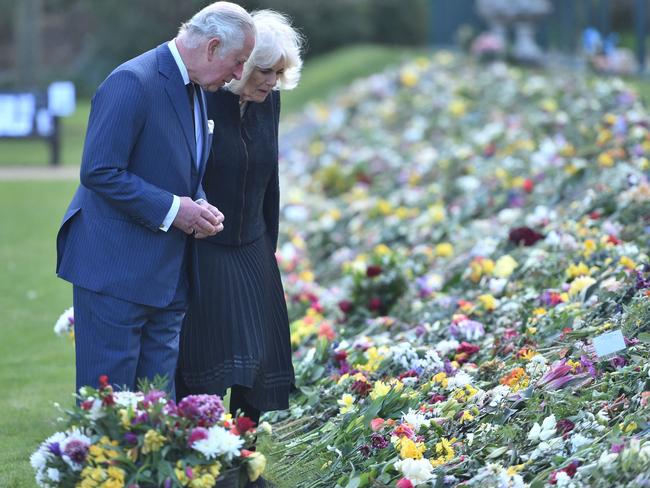
Sydney psychologist Chantal Kayem said misunderstanding, misinformation and a lack of empathy were often common causes of family conflict.
“We all have our own way of interpreting the world and we interpret what our family member says or does with our own subjective filter – often, what we think is not what they mean,” she said. “That’s why effective communication skills are key to ensure that the family member you are speaking to has fully understood what you really meant by your words or actions.
“Family discord can also occur not only when one family member is not being heard or understood, but also when there is criticism or judgment.
“We all make mistakes and if one can try and listen to our loved one without judgment, then our relationship with them can be greatly improved.”
Kayem said some personalities were naturally stronger and often pushed their points of view more fiercely, making it more difficult to achieve effective communication.
“Sometimes in arguments, it is important to agree to disagree and some personalities have difficulties with that,” she continued.
“Any type of significant or tragic event can completely change our way of viewing things.
“For instance, when someone close to us and dear to us suddenly passes away, it often creates changes in our thinking, beliefs and values such as realising that family is most important to us and comes first before work or other duties.”
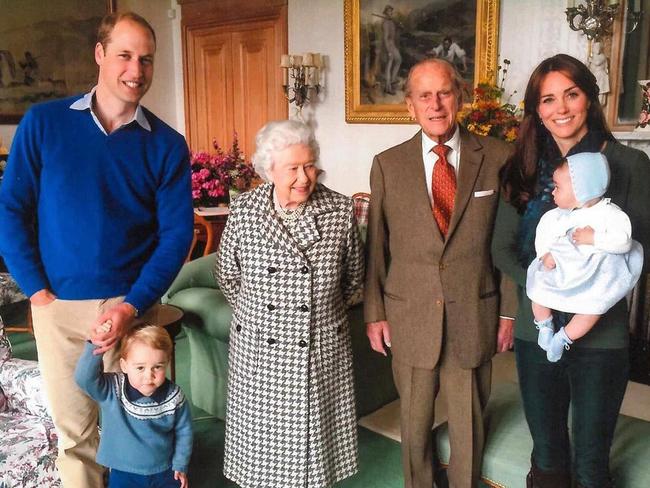
Kayem said despite best intentions, if a relationship was toxic or abusive it was healthier to walk away.
“If there is unhealthy communication or a family member is unable or unwilling to properly hear, acknowledge and empathise with your experience, then you will not be able to move forward together,” she said.
“It is also important to note that it is most difficult to truly listen, acknowledge and empathise with another person when our emotions are high, so it’s best to communicate once we are calm … instead, learn effective ways to express how you feel with the aim of not hurting the other.
“And remember that all relationships will experience disagreements and conflict at one time or another.
“A family rift is not irreparable if the members are willing to sit down, talk and truly listen to each other in a healthy way.”

TACKLING TOUGH CONVERSATIONS
Key guidelines to effective communication, according to psychologist Chantal Kayem:
• Keep the conflict specific. Stick to the issue and avoid magnifying or distorting the problem.
• Avoid generalisations and focus on the present. Don’t dig up past incidents in the same conversation. If there are past incidences that have not been revolved, bring them up at a later time.
• Keep calm. Watch your voice. Quiet assertiveness makes your point better than screaming.
• Pick your battles. Focus on discussing important issues and let go of anything else.
• Don’t name-call. It is hurtful and never helps.
• Avoid criticising or attacking your loved one’s personality or ego. Speak about the specific behaviour instead.
•Avoid threats. Do not threaten to leave the home or relationship.
• Agree to disagree. When you have different opinions that do not impact you directly, avoid trying to convince them of your view.
• Take responsibility for your own behaviour. Don’t blame your loved one for how you behaved. No matter what they may have done wrong, you are the only one in control of yourself.
• Avoid trying to win the argument. Focus instead on resolving the conflict amicably.
Originally published as Prince Philip’s funeral to test Harry and William’s royal rift


